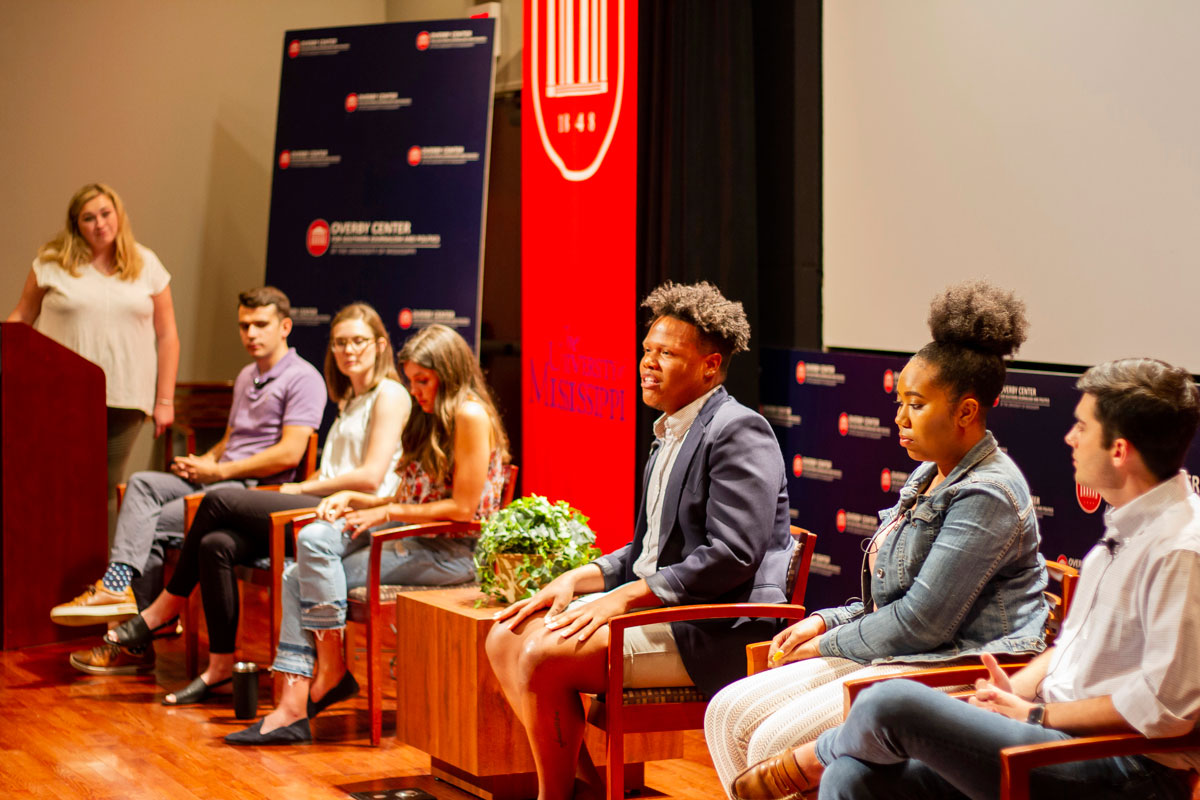Savannah Smith will receive her degrees in journalism and public policy leadership on May 12, and by this time next year, she will be completing her first year of graduate school at New York University. Smith is one of thousands of Mississippians who will leave the state in a phenomenon known as “brain drain.”
According to Merriam-Webster, brain drain is defined as “the departure of educated or professional people from one country, economic sector or field for another, usually for better pay or living conditions.”
Smith said she first encountered the brain drain phenomenon during a 2017 depth reporting trip to Sri Lanka with the Meek School of Journalism and New Media. After becoming enthralled by the issue, Smith decided to return to Ole Miss and complete her honors thesis on brain drain in Mississippi.

“I already knew I wanted to do my thesis on higher education and the transformative power of it, but in Sri Lanka we had a lot of conversations about brain drain with people at universities,” Smith said. “I thought about that and wanted to pursue that more. We came back to Mississippi, and I talked to different professors and learned (about) how much of a problem it is here.”
After successfully completing her honors thesis, titled “Brain Drain in Mississippi: Why Some of the State’s Best and Brightest are Leaving,” Smith realized the culmination of her research during an open discussion at the Overby Center for Southern Journalism and Politics on Tuesday night.
Smith partnered with Ole Miss alumnus and Rethink Mississippi coordinator for the William Winter Institute for Racial Reconciliation Jake McGraw to present the numbers and some of the people most impacted by brain drain. McGraw, Smith and six student panelists from Ole Miss and Millsaps College in Jackson, all seniors, discussed their reasons for leaving or staying in Mississippi after graduation.
According to McGraw and Smith, between 2010 and 2017, Mississippi lost a population of nearly 40,000, which is larger than the population of Meridian, the sixth-largest city in the state. Between 2010 and 2016, Mississippi has lost more millennials than has any other state in the country – a statewide net loss of nearly four percent. Most of the people who are leaving the state are those with bachelor’s and master’s degrees.
“Brain drain has deep financial costs, social costs, political costs, personal and human costs,” McGraw said.
Many Mississippians relocate to Texas, Georgia, Florida, Alabama, Arkansas, North Carolina and South Carolina, according to McGraw. He said Mississippi sees a net positive immigration of people from Louisiana and Tennessee.

Brady Ruffin, one of the panelists and a senior integrated marketing communications major, will be moving to Arkansas to pursue a master’s degree at the Clinton School of Public Service at the University of Arkansas-Little Rock.
“I really want to make the best impact I can, and I want to be well-equipped. For what I want to do, [University of Arkansas-Little Rock] is the best option for me,” Ruffin said. “I really love and respect Mississippi, and I want to come back, but the opportunities offered to me elsewhere are more substantial and impactful.”
Other panelists expressed similar sentiments about leaving Mississippi after graduation. Terrence Johnson and Alexis Neely, both senior journalism majors, will be moving to Boston for graduate school and Washington for work, respectively.
“Mississippi is not a media mecca. I want to have a very substantial life and career in media, and I don’t think Mississippi can provide it to the caliber I want, but the state needs to show everyone that it’s a place where they can see themselves be supported, involved, cared for and loved,” Johnson said. “Mississippi doesn’t do a good job of showing its residents that.”
Another panelist, Noah Barbieri, is a senior studying economics, math and philosophy at Millsaps College. He will also be contributing to brain drain in Mississippi as a recipient of the Rhodes Scholarship. Barbieri will attend the University of Oxford in England to pursue a master’s degree in economics. He said he is leaving Mississippi out of necessity for education, but he also said the state should do more to attract and keep educated millennials within its borders.
“I think people from our generation are looking to move to a place where people are moving forward. We need to make this an exciting place where exciting things are happening,” Barbieri said. “We need to give people an opportunity to be a part of something.”
Only two of the six panelists plan to remain in Mississippi after graduation, both of whom will do so as a part of the Mississippi Teacher Corps. Alexis Smith, an Ole Miss senior studying international studies and Spanish, and Kendall Hardy, a Millsaps senior studying political science, will both be teaching at public high schools across Mississippi.

Alexis Smith said she feels a personal duty to give back to the state’s education system.
“Knowing that I am a product of public school education in Mississippi, it was my goal to be the type of teacher that I desperately wanted to have when I was in high school,” she said. “Mississippi Teacher Corps provides resources and professional support for those who want to stay and teach in Mississippi.”
However, even Alexis Smith said she would, at some point, pursue further studies outside of the state.
“My ultimate goal is to be a professor of educational linguistics in a graduate school of education. I do intend to leave the state for a while, simply because there are no Ph.D. programs for what I want to do,” Alexis Smith said. “I think the state should provide more for the expansion of professional and academic opportunities throughout state, create a state where all people feel they can belong and improve infrastructure so businesses can come here.”
















